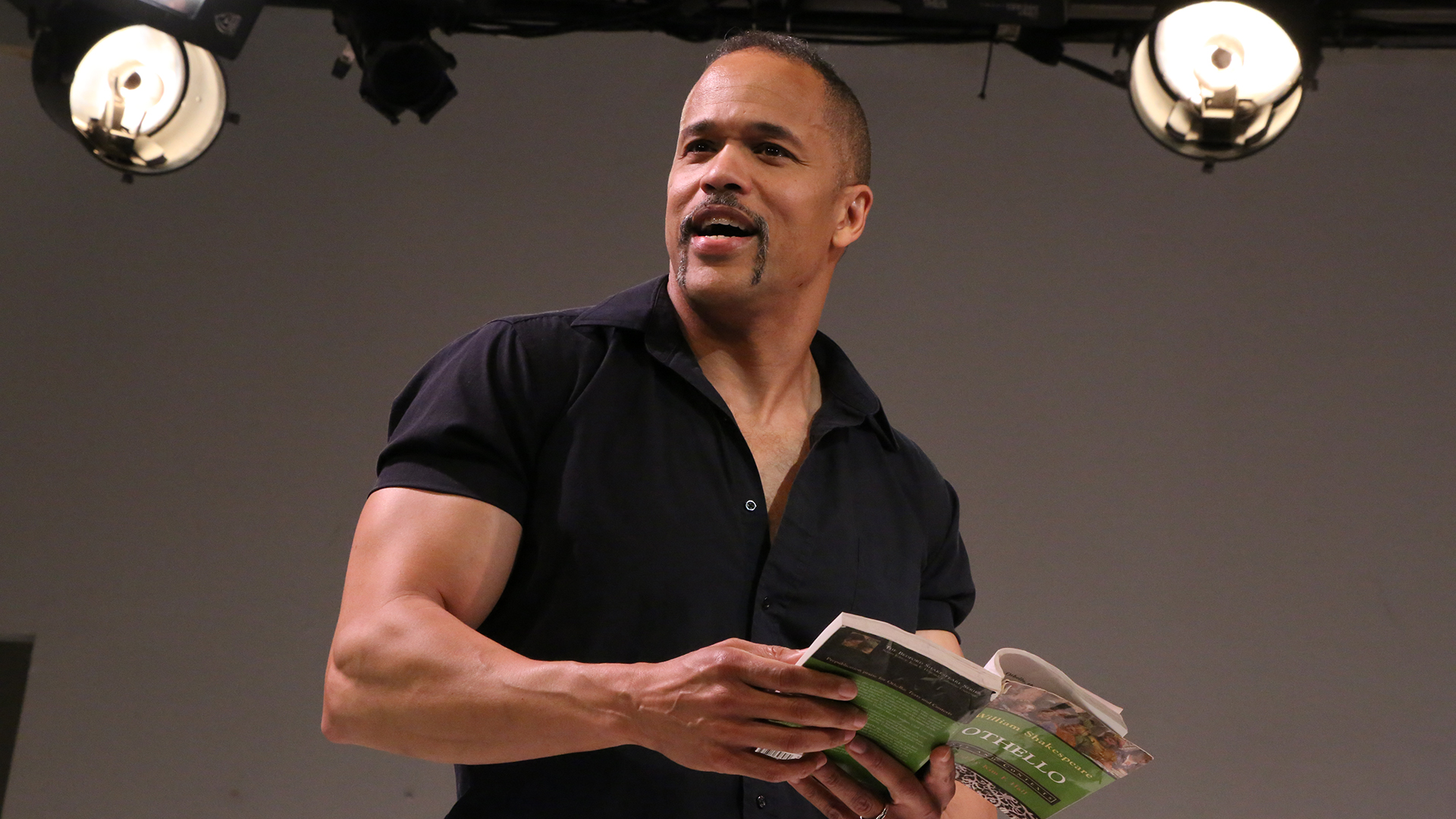Friday, Sep 25, 2015
Keith Hamilton Cobb will perform 'American Moor' on Sept. 30 in the Bart Luedeke Center
by Adam Grybowski
More often than not, the major roles of Shakespeare’s plays go to white actors. Hamlet, Romeo, Lear, Macbeth and other iconic characters are rarely if ever portrayed by minorities. Othello is the exception. Many black actors, including Paul Robeson, James Earl Jones and Laurence Fishburne, have played the paranoid moor with distinction.
Othello has shadowed actor and playwright Keith Hamilton Cobb for most of his acting career, which is in its third decade. “I’ve been told for 30 years that Othello is the only major Shakespearean role for me,” says Cobb, who is 53. “Why not Hamlet? Why not Romeo?”
The questions burn at Cobb, because he believes the industry and the culture it exists in are limiting his choices. If he does have the opportunity to perform the role, which he says he’s ultimately indifferent about, he wants to unfix the entrenched ideas of how it should be played. “I began to look at this,” Cobb says, “and think how I could elevate the role and give him dignity and push back against the cultural ideas that control how he is often perceived.”
That perspective has caused Cobb to clash with his collaborators in the theater. About two years ago, Cobb responded to one of those clashes by writing American Moor, a one-man show that portrays the dialogue between a black man auditioning for Othello and an unseen (and presumably white) theater director. The play, which Cobb will bring to Rider University on Sept. 30, came pouring out of him in a day and a half. (It would go through 38 revisions before reaching its final version.)
American Moor has recently been performed in several cities, including New York and Washington, D.C., while the country is once again confronting the problem of race after the highly visible shooting deaths of several African Americans at the hands of white police officers. The play uses Othello as a metaphor that describes the experience of the American black male. “In this country, we see gross disparities, a lack of respect and state-sanctioned bias. We cannot deny that they’re there,” Cobb says. “As a black male in America, I’ve had a plethora of experiences that any other black male in this country would relate to. They accumulate and live with us, and I’ve depicted them in this play.”
An alumnus of New York University's Tisch School of the Arts, Cobb made a name for himself among soap opera fans by appearing on All My Children in the 1990s and among science fiction fans by appearing as a mercenary named Tyr Anasazi in Gene Roddenberry's Andromeda. In 1996, People named him to its list of 50 most beautiful people. Despite that success, Cobb works in an industry where many struggle to sustain viability.
Over the course of his career, Cobb has witnessed first hand the age-old battle between art and commerce. From his perspective, commerce always wins. “Everything has been reduced to a business concern,” he says. “Where is the art in that? The theater has traditionally been a tool to stimulate ideas and emotions through drama. When that tool smacks up against a business model, art is usually the first thing that’s compromised.”
As much as American Moor speaks to issues of race and culture, Nick Barbati, assistant director of Rider’s Campus Life Office, saw the play in the larger context of identity. He believes it also speaks to the soul searching college students face when trying to conform to expectations while trying to remain true to themselves.
The idea of performing the American Moor for a young generation of students excites Cobb. “I’m hoping they will be moved by it,” he says. “I’m hoping they will share their thoughts and ideas about it and what it sparks in them, and I hope they leave having heard things they have never heard before.”
American Moor will be performed on Wednesday, Sept. 30, at 8 p.m. in the Bart Luedeke Center Theater. The play is free and open to all Rider faculty, staff and students, as well as the public. For more information, contact the Campus Life Office at 609-896-5327.

